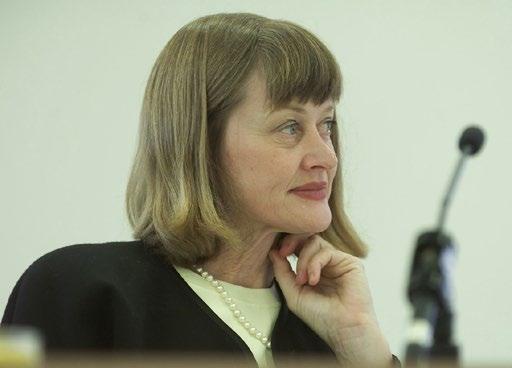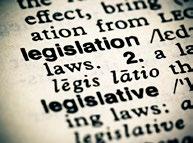
‘A CONTINUING FAILURE’
Access to justice


‘A CONTINUING FAILURE’
Access to justice
LawNews is an official publication of Auckland District Law Society Inc. (ADLS).
Editor: Jenni McManus
Publisher: ADLS
Editorial and contributor enquiries to: Jenni McManus 021 971 598 Jenni.Mcmanus@adls.org.nz
Reweti Kohere 022 882 2499 Reweti.Kohere@adls.org.nz
Advertising enquiries to: Darrell Denney 021 936 858 Darrell.Denney@adls.org.nz

All mail to:
ADLS, Level 4, Chancery Chambers, 2 Chancery Street, Auckland 1010 PO Box 58, Shortland Street DX CP24001, Auckland 1140, adls.org.nz
LawNews is published weekly (with the exception of a small period over the Christmas holiday break) and is available free of charge to members of ADLS, and available by subscription to non-members for $140 (plus GST) per year. To subscribe, please email reception@adls.org.nz.
©COPYRIGHT and DISCLAIMER Material from this publication must not be reproduced in whole or part without permission. The views and opinions expressed in this publication are those of the authors and, unless stated, may not reflect the opinions or views of ADLS or its members. Responsibility for such views and for the correctness of the information within their articles lies with the authors.
Access-to-justice issues remain a “continuing failure” and the knee-jerk preference to imprison offenders is not healthy for society, retiring High Court judge Ailsa Duffy said at her valedictory sitting in Auckland last week.

In a forceful address, Duffy said New Zealand was now a “harder, colder, more brutal place” than it was when she started practising law in the late 1970s.
“The concern about access to justice is not just some idealistic concern. Those who are shut out and excluded, through lack of funds to afford the law’s protection, may look to other ways to achieve what they believe is a just outcome. That is not desirable or healthy for any society.”
Excluding offenders from society was also unhealthy. “Treating them as ‘the other’, to be locked away for our safety, typically results in them regarding us as the other…They feel no empathy for us and we do not usually demonstrate empathy for them,” she said.
Appointed to the bench in 2007, Duffy became a Queen’s Counsel nearly a decade earlier – only the sixth female Silk at the time. After graduating from the University of Auckland and upon admission to the bar in the late 1970s, she practised as a barrister at the Grey Lynn Neighbourhood Law Office, becoming head solicitor in 1983. From 1985 to 1988, she continued practising as a barrister in Auckland before joining the Crown Law Office as Crown Counsel, spending eight years there. She returned to the independent bar in 1996, practising civil and public law.
Flanked by her judicial colleagues at her final sitting, Duffy said the law came alive for her when she started appearing in court and using her knowledge and ability to ensure fair outcomes. Her early experiences in the law had led her to believe it could benefit people’s lives. Besides having good healthcare to live well, New Zealanders also needed good access to legal services. While healthcare is publicly funded, good “legal care” hasn’t been well provided for, she said.
“In my view, this is a continuing failure in our society. For this [valedictory] occasion, I regret my speech at my swearing-in. On that occasion, I had spoken of the barriers to access justice and
how they need to be removed. Sadly, some 15-and-a-half years later, those barriers remain firmly in place.”
The Grey Lynn community law office, run as a pilot scheme by ADLS, took on significant legal cases, Duffy said. In her view, the most significant was Daganayasi v Minister of Immigration, “the first clear statement of New Zealand administrative law that the opportunity to be heard before an adverse decision is made against you, is always to be given”.
After Joanna Daganayasi failed to obtain permanent residency, she pleaded guilty to and was convicted of overstaying her temporary visa. Daganayasi appealed to the Minister of Immigration against automatic deportation on the basis one of her children, born in New Zealand, had a rare heart disease and had to remain in the country to receive proper treatment. The minister declined to stop her deportation. On review, the High Court found the minister had acted fairly. The Court of Appeal disagreed unanimously: the minister didn’t validly deal with her request before her deportation.
The ability of people to walk into a community law office
Those who are shut out and excluded, through lack of funds to afford the law’s protection, may look to other ways to achieve what they believe is a just outcomePhoto: Phil Walter Getty Images
To me, Aotearoa looks a harder, colder, more brutal place than it did when I was starting out
Continued from page 03
and obtain legal representation, which could place their case before the Court of Appeal and result in a life- and law-changing decision, was “quite something”, Duffy said.
But this couldn’t happen today; she understood community law offices now provide no more than advice, no amount of which could have enabled Daganayasi to achieve, by herself, what her barrister achieved. “Daganayasi enriched our administrative law as well as providing a lifesaver for Daganayasi’s child. The benefits of that decision were wide-ranging.”
Duffy said she didn’t know why community law offices had stopped providing legal representation, but such representation “has always seemed to me to be a cost-effective way to ensure those who cannot otherwise afford access to justice will receive it”.
Civil legal aid remained dogged by the same problems that existed when the judge stopped legal practice. Criminal legal aid was similarly compromised, “with both the rates and conditions of pay too poor for the work entailed”. Duffy said the requirement to register as a civil legal aid practitioner gave lawyers who otherwise might have felt morally compelled to help, a “perfect excuse” for refusal.
“Our law provides ample rights and protection. And, if it can be accessed, it provides remedies when those rights and protections have been ignored or trampled on. The problem is those who most need the law’s protection are usually those who are most unable to access it. Hopefully this will change in the future – although I am not optimistic,” she said.
Pro bono services were a poor substitute, despite lawyers offering them to help improve access to justice. Duffy said pro bono work entailed treating a client as a “charity case, rather than someone who has a proper and lawful entitlement to access justice.
“Not every litigant without funds is likeable, worthy or easy to manage. In principle, we should not disqualify such persons from obtaining access to justice. It is hard to see how they might attract an offer of pro bono legal services.”
Treating offenders by excluding them from society has harmful consequences. “While they are locked away, their families typically disintegrate. Children lose their relationships with their imprisoned parents. And the difficult circumstances under which the families of imprisoned offenders live often serve to create intergenerational offending,” Duffy said.
Lawyers and judges involved in sentencing regularly saw these outcomes. By contrast, feeling included and empowered to contribute to society and having a well-functioning family, a home and a job best discouraged people from committing crime. “The fact imprisonment is more likely to result in future imprisonment is well-established. The fact that it can also result
in future generations of imprisoned offenders is perhaps not so well-established. But anyone who’s regularly read pre-sentencing reports cannot help but observe this also seems to be a reality.
“For purely selfish reasons of self-preservation, as a society we need to work on doing what it takes to rehabilitate offenders.”
Duffy said she’s lived a fortunate life: she was born in Aotearoa New Zealand; she did well academically; education was essentially free and anyone with a university certificate could seek higher learning; fees were negligible and holiday jobs readily available; and university qualifications – for Pākehā –were easily attainable, provided they had some academic ability.
“In many ways, things were easier for me than they are for any young people now.,” she said.
After her first appearance, court work was all she ever wanted to do. By the time she entered the law, being female wasn’t the “oddity or hindrance” it had been for earlier generations. But Duffy acknowledged her first four years working at the community law office were partly because she didn’t think she would receive the same opportunities for court work had she worked at a traditional law firm.
As she went about “strategising” how she might appear in court more frequently, Duffy said she never dreamed she could take Silk or become a judge, “let alone have all female speakers at my valedictory sitting. These were all beyond my imagination.”
Only in 1988, with the promotion of Dame Sian Elias and Dame Lowell Goddard to Queen’s Counsel and the appointment of Dame Silvia Cartwright to the High Court in 1993, did those roles start to seem attainable for people like her.
Duffy said the greater diversity of gender and race, which the profession and judiciary reflected today, was something to be proud of. “No one should be shut out, particularly from doing something they love, simply because they do not fit the norm.”
In starting her address in te reo Māori, she recounted a moment in 1987 where she was prevented from calling on actor, Māori religious leader and activist Eru Potaka-Dewes, from Ngāti Porou, to give a cultural report for the sentencing of her client. Potaka-Dewes had intended to address the Auckland District Court in te reo and English. It was the proposed use of te reo that prompted the obstruction. “We have made some progress,” she said.
Members of the Bar praised Duffy on her stellar career. Described as “our stout-hearted leader”, the judge’s service across her legal career had been marked by “kindness, compassion, and fearless independence and determination to do right by all those who needed your help”, said Manukau Crown Solicitor Natalie Walker.
The judge had never forgotten the need to be careful of
Continued on page 05
Offenders feel no empathy for us and we do not usually demonstrate empathy for them
Continued from page 04

those who would be affected by her decisions, Walker said. “You are open-minded and don’t rush to judgment; you care about getting the right result; you are kind and gracious to everyone who appears in your court – lawyers and litigants.”
Criminal barrister and ADLS Vice-President Julie-Anne Kincade KC shared with the court a letter written by a mother of a young man killed in a gang shooting in Whangārei. Addressed to Duffy, who presided over the homicide trial, the letter acknowledged the “high standard of law, ethics, dignity and integrity” the victim’s family observed during the proceedings. The mother thanked the judge for being “very precise and fair, with the utmost integrity and respect”.
To those adjectives Kincade added compassion and understanding. “Justice Duffy personifies all these virtues…your wisdom, guidance and unwavering commitment to justice have left an indelible mark on all of us.”
Maria Dew KC, President of the New Zealand Bar Association, highlighted Duffy’s role as chair of the Ministerial Committee of Inquiry into the Under-reporting of Cervical Smear Abnormalities in the Gisborne region.
Between 1991 and 1996, more than 12,000 women had smears taken in Te Tairawhiti by a community laboratory. Concerns were later raised about the laboratory’s work, which was investigated. Early results from re-reads of the smears indicated many more abnormalities existed than the laboratory had initially reported. The ministerial inquiry was established soon after in 1999.
The committee concluded there was ample evidence to show an unacceptable level of under-reporting in Gisborne, although it wasn’t an isolated case; a systemic issue existed with the national program of cervical screening.
Dew said the inquiry was significant at the time, lasting more than 10 weeks and receiving difficult evidence from women who had suffered harm from medical professionals and experts.
“The report delivered to the government of the day clearly exposed a significant level of underreporting for women in the Gisborne area, and led to some very systemic improvements in the national screening program for women.” Dew thanked Duffy for her contribution.
Iswari Jayanandan, speaking on behalf of the South Auckland Bar Association, said Duffy exemplified a “type of judicial conduct that simply sets you apart”.

In a homicide case involving a Māori defendant, for example, Duffy was troubled by witnesses referring to his tokotoko, or a Māori symbol of authority and status, as simply a stick. The judge didn’t hesitate in requiring all those appearing before her to respect its mana. Jayanandan said this “seemingly simple, but deeply meaningful, act” had an enduring impact on the defendant and other participants.
Duffy next plans to look after “her garden” – a block of 24ha of land on the Whangārei Heads, half of which is covered by QEII covenants. The remainder would be placed under similar covenants to “ensure the land remains always in its natural state”, she said.
“Fairness has always been most important to me. My focus now is on ensuring the indigenous flora and fauna of Aotearoa get a fair go at existing. The adverse effects of introduced species since colonisation, and now the human-induced climate adversity, mean they need all the help they can get.”
Speaking in the very courtroom she had been admitted in as a barrister and solicitor some 44 years earlier, Duffy said courtroom one, with its varnished wooden interior and lofty ceiling, was an “old friend” to her and a place that held “many happy associations”. It was there where she was called to the independent bar and, nearly a decade later, where she was sworn in as a judge.
“If, once again, I had the time that I had had, then I would do it all again without changing things at all.” She thanked everyone for their attendance. “You have made my final appearance in this court as momentous for me as my first appearance…Kia kaha, kia māia, kia manawanui. Mr Registrar, the court will retire.” ■
No one should be shut out, particularly from doing something they love, simply because they do not fit the norm
their profession, assert the rights of an individual under the rule of law and insist that every accused is accorded a fair trial. There is nothing here at which, half a century later, one would wish to cavil. Moyo went on, as others had done, to list the characteristics of a society in which the rule of law is observed: a general clarity of the law; the existence of a climate of legality; the existence of an adequate and justiciable bill of rights; the existence of an independent judiciary; and the existence of an independent legal profession.
I have previously drawn attention to the New Zealand Law Society’s failure to protect lawyers’ independence and to ensure that the rule of law was observed in the terms of reference for the deceptively named Independent Review.
The events of July 2023 show NZLS to be not just careless about the rule of law but positively hostile to it.
Until July 2023, NZLS had a Rule of Law Committee (ROLC). Its terms of reference were to:
■ advise and assist the legal profession in meeting the fundamental obligation of lawyers expressed in s 4(a) of the Lawyers and Conveyancers Act 2006;
■ promote the continued separation of the legislative, executive and judicial functions of government and, in particular, to promote and protect judicial independence;
Judicial independence is a critical ingredient of the rule of law. The late Tom Bingham, former Lord Chief Justice of England and Wales, had a lot to say about it in The Rule of Law: These statutory references make clear that judges must be independent of ministers and the government. Does the principle require independence of anyone or anything other than the government? It does. It calls for decision-makers to be independent of local government, vested interests of any kind, public and parliamentary opinion, the media, political parties and pressure groups, and their own colleagues, particularly those senior to them. In short, they must be independent of anybody or anything which might lead them to decide issues coming before them on anything other than the legal and factual merits of the case as, in the exercise of their own judgment, they consider them to be…. Scarcely less important than an independent judiciary is an independent legal profession, fearless in its representation of those who cannot represent themselves, however unpopular or distasteful their case may be.
And Sternford Moyo, former president of the Law Society of Zimbabwe, drew attention to a declaration on the rule of law made by the International Commission of Jurists at Athens in 1955. It provided that:
■ the State is subject to the law;
■ governments should respect the rights of individuals under the rule of law and provide effective means for their enforcement;
■ judges should be guided by the rule of law, protect and enforce it without fear or favour and resist any encroachment by governments or political parties in their independence as judges; and
■ lawyers of the world should preserve the independence of
■ monitor and respond to rule of law issues arising from proposals, decisions or actions of the New Zealand government or government agencies;
■ monitor the mechanisms of government, including constitutional conventions;
■ maintain a neutral political position;
■ respond, as appropriate, to requests for advice and assistance from international legal associations on rule of law issues; and
■ assist the Law Commission in its goal to achieve laws that are just, principled and accessible.
In July 2023, NZLS quietly disestablished the ROLC. In the absence of any explanation, the following course of events points to the likely cause.
On 6 October 2021, the ROLC sent a memorandum to NZLS’ president and board concerning a threat to judicial independence. It is likely readers won’t have heard about it because NZLS kept it under wraps.
During substantive consideration of the matters canvassed in the memorandum, the committee’s membership comprised chair Austin Forbes KC and members Gregor Allan, Christopher Griggs, Isaac Hikaka, Sarah Jerebine, Professor Philip Joseph, Professor Geoff McLay, Sir Geoffrey Palmer and James Wilding KC.
The matters which attracted the ROLC’s attention concerned the undermining of judicial independence. Oranga Tamariki (OT) was a party to a part-heard Family Court proceeding. OT’s then interim chief executive, the late Sir Wira Gardiner, communicated with Chief District Court Judge Heemi Taumaunu and the

The only available explanation is that NZLS did not like the advice it was given, so it got rid of the advisers
Protecting and upholding the rule of law and lawyers’ independence are so fundamental to NZLS’s reason for being that its failure on both counts indicates that NZLS has become seriously dysfunctionalGary
Judd KC
Principal Family Court Judge, Judge Jackie Moran, about the part-heard case, reportedly concerning the conduct of the sitting judge towards witnesses of or from OT. Judges Taumaunu and Moran sought to engage with the sitting judge about those concerns. The sitting judge declined to engage.
That short description is adequate to show that the sitting judge had a proper appreciation of the rule of law’s requirement for judicial independence, but the Heads of Bench and OT’s interim CE did not. The ROLC also considered related matters which it viewed as raising rule of law concerns, such as monthly meetings of OT staff with a Head of Bench during which they complained about the sitting judge’s conduct.
It would not be necessary for the judges to be familiar with works such as Bingham’s to know what the rule of law requires. Quoted in the ROLC’s memorandum, the New Zealand Guidelines for Judicial Conduct 2019, include this:
Independence in the discharge of judicial duties
19. Judges are independent in the performance of judicial function not only from the other branches of government, but from each other. Judicial decision-making is the responsibility of the individual judge, even in a collegiate appellate court.
The Chief Justice or Head of Bench has no authority over the discharge of judicial function by other judges. Indeed, it is implicit in the judicial oath’s pledge to serve “without fear or favour, affection or ill will.” Judicial independence is an absolutely fundamental characteristic of a nation subject to the rule of law. The ROLC recommendations included that NZLS write to the Chief Justice and Attorney-General, raising the concerns outlined in the memorandum, publish an article in LawTalk raising the concerns and informing or reminding readers of the conventional mechanisms for addressing concern about judicial conduct and that it advocates for written protocols addressing the role of public servants and the judiciary, including the Heads of Bench, when they become aware of issues regarding judicial conduct. We, the members whose interests NZLS has the function of representing and serving, would not know if NZLS had sent the recommended letters unless it chose to tell us and it is just possible that the advocacy for written protocols may have been done privately. But we certainly do know that LawTalk has not published an article.
It is perfectly obvious that without a ROLC, NZLS has no ability to perform its functions concerning the rule of law. NZLS comprises a board, council and bureaucracy whose personnel are not selected for their rule of law expertise. Therefore, NZLS had a group of eminent practising and academic lawyers to assist it to do so. I considered the possibility of another committee assuming the responsibilities. Scanning the list of committees on the NZLS website, no longer including the ROLC, the only possible candidate was the Public Law Committee, but its description when I looked at 3:53 pm on 24 July was:
The Public Law Committee takes an interest in any issue coming under the rubric of “public law” including, but not
limited to, constitutional and administrative law, the role of the three branches of government, and the interface between government and the citizen.
When I looked again, on 28 July, the website description had changed to:
The Public Law Committee was established to advise the Law Society board and contribute to proposals for legislative, regulatory or other change in the area of public law. The committee’s area of work includes:
■ the rule of law;
■ constitutional law, including key constitutional principles such as representative democracy, judicial independence, and the relationship between branches of government;
■ administrative law, including administrative decision-making, regulatory frameworks and systems and the powers and independence of investigative and oversight bodies; and ■ the structure, functions, and powers of central and local government bodies.
This is entirely disingenuous. Plainly, the Public Law Committee, which has been in existence for many years, was not “established” with the additional rule of law areas of work.
It has been given rule of law work and had “judicial independence” added, so recently that the website description changed between 24 July and 28 July.
The change must have occurred because NZLS had disestablished the ROLC, the committee with the dedicated function of helping NZLS to discharge its duties arising from the most important of lawyers’ fundamental obligations, to uphold the rule of law and facilitate the administration of justice.
Why has NZLS not told the profession what it has done? Why does its website description not frankly say that it has disbanded the ROLC and expanded the work of the Public Law Committee? Why has it not explained why it has dispensed with the services of eminent rule of law experts?
NZLS’s members are not served by such opacity and obfuscation. Do we wish to be represented by an organisation which conducts its affairs in this way, purportedly on our behalf?
Because NZLS has not given an explanation, we must draw our own conclusions about the reasons. The only available explanation is that NZLS did not like the advice it was given, so it got rid of the advisers.
The sequence of events indicates NZLS has moved from not caring about the rule of law to active hostility to it. Making it a bit-part of the work of a committee with public and administrative law as its primary focus pays no more than lip service to the rule of law and displays contempt for its fundamental importance and the role of New Zealand lawyers in its protection and promotion.
Protecting and upholding the rule of law and lawyers’ independence are so fundamental to NZLS’s reason for being that its failure on both counts indicates that NZLS has become seriously dysfunctional. It seems to be in the clutches of idealogues whose objectives are aligned with neither the rule of law nor the welfare of the profession. ■
The events of July 2023 show NZLS to be not just careless about the rule of law but positively hostile to it
What can we do in our profession to make sure the rule of law is not just a rule for the rich, but the rule for everybody?
As a law student at the University of Sydney in the early 1960s, Michael Kirby would raise his hand and query and question.
But at no point during his studies did the 84-year-old former judge of the High Court of Australia remember asking why indigenous Australians lacked any legal right to their traditional lands. Or why the law accepted that Australian women were dependent on and inferior to men. Or why migrating to Australia was possible only for white people, and never for the Chinese.

“That was the country I grew up in and I never asked a question about it. I just accepted it,” Kirby said in a talk hosted last week by the Legal Research Foundation. In front of a room of lawyers, judges and former Governor-General Dame Silvia Cartwright, Kirby spoke of the challenges facing the profession in 2023 as it grapples with the “watchword of our time”: change.
“So unquestioning” were Australians in 1962, said Kirby, an honorary fellow of the Legal Research Foundation, that they thought the status quo would last for the rest of their lives. He grew up believing Australians were entitled to decide who was welcomed to their shores. He grew up learning that the very founding of Australia was based on making Aborigines and Torres Strait Islanders “invisible” and turning their homelands – and the entire continent – into an “empty place” capable of discovery. And he was taught that married women couldn’t acquire domicile in their own right; their husbands’ place of abode was theirs.
“Did I ever raise my hand about that? No, I didn’t. Nobody else in the class did. No one was encouraged to raise their hand. This was the rule,” Kirby said, slamming his palm on the lectern. “Your job was to learn the rules. And I was pretty good at learning the rules.”
‘I shut up’
He kept quiet, even when the rules concerned his sense of self.
During his studies, Kirby sat in a criminal law lecture taught by a local Queen’s Counsel. When the practitioner reached ss 79 to 81B of the Crimes Act 1900 of New South Wales, Kirby felt himself blush – the crimes made up the part of the Act known as “unnatural offences”.
Did he, a gay man, ask why people like him could be prosecuted, found guilty, and sentenced to “penal servitude” for 14 years for the “abominable” crime of having sex with another man? Did he ask why buggery and bestiality, together, made up s 79 of the Act? Did he ask why New South Wales had a punishment so disproportionate to a crime that was only an offence against morality?
“That was the last thing I was doing. I was really feeling ashamed that I should be very quiet here. Do any of them know? Does anybody realise? Does anybody suspect?” he said. “I shut up. I shut up for a long time. And had I not shut up, I would not be here with you today.
“That was the rule of silence.”
“Undoing all these silences” that existed in earlier generations is what faces societies today. It’s sometimes uncomfortable and beset with obstacles and problems, Kirby said, and not all reversals are done at the same time. But once society changed,
Continued on page 09
Once society changed, lawyers and judges had to follow suit or risk becoming a relic
Michael Kirby
That was the country I grew up in and I never asked a question about it. I just accepted it
Continued from page 08
lawyers and judges had to follow suit – or risk becoming a “relic”.
The challenges facing the profession were “continuing change and being part of that change”. Today’s silences? The proliferation of nuclear weapons, refugee rights and migration, climate change and access to justice, he said.
“Who now is looking after the poor and disadvantaged? They’re also citizens. They sometimes have legal claims that are not respected. We ought to think about that. What can we do in our profession to make sure the rule of law is not just a rule for the rich, but the rule for everybody?”
His life has coincided with global transformation: world wars, the breakdown of the British Empire, the enfranchisement of Indigenous Australians in 1962, Australia’s first woman prime minister and, in 2017, marriage equality. The headway made on LGBTQIA+ issues on both sides of the Tasman has been extraordinary, said Kirby, who never thought it would happen when he met his husband, Johan van Vloten, in 1969. “I did not think I would live to see any change. And had I not conformed, I would not have gone forward.”
Kirby’s sexuality, as a gay man, has meant he’s been motivated by the “hatred, dislike, contempt and disgust” that often is directed at people who are different.
While he didn’t look as though he was part of a minority, his sexuality gave him an empathy for others, he said. But how he and other students did not question the multitude of injustices that were afflicting Australia in the sixties was a question that left him puzzled.
Referring back to the “unnatural offences” lecture, he said he felt “utterly powerless” to change almost 5,000 years of moral and religious thought, entrenched in the law. The relevant sections of the Crimes Act were worded with “nasty language”, describing a crime that was “so evil that it may not be spoken of”.
Kirby believed he never would have had a chance to change it, “so I just had to cop it”.
But that powerlessness hadn’t left him paralysed. Even as a child, he knew conventional beliefs about sexuality – and the discrimination that targeted queer people – were wrong. American sexologist Alfred Kinsey’s seminal books, Sexual Behaviour in the Human Male and Sexual Behaviour in the Human Female, had been written when Kirby was in primary school.
Because he read the newspapers, Kirby knew about Kinsey’s research into the sexuality and sexual preferences of
American men and women. Later, as a university student, he consumed every piece of literature he could get his hands on, not to improve his grades but because he was “passionately interested” in acquiring a better understanding.
Justice is our banner
“But I didn’t ask questions about women’s rights. And I didn’t ask questions about indigenous rights. I didn’t ask questions about White Australia,” he said. “I didn’t ask questions about refugees and I didn’t ask questions about animal rights.”
The original question had been raised in connection with philosopher Martha Nussbaum’s recent book Justice for Animals: Our Collective Responsibility, which has argued for increased legal standing for animals and an ethical framework in which their rights to live and flourish are not subordinated to our own.
Kirby joked that he felt “very vulnerable to the sudden advent of irrelevancy” in the last week of his time on the High Court bench. So he helped launch a book on animal welfare law in Australia and New Zealand. The knowledge he learned about how humans hurt highly sentient creatures was more knowledge than he wanted to have. But it led to fundamental change: he hasn’t eaten meat since. Even his husband eats much less meat, although “it does create a problem in the kitchen”.
The way in which drug use and addiction have been handled was another issue that societies would reproach themselves over, Kirby said. “We’ll look back [on these issues] with the same feeling as I have of the many things I’ve already mentioned. So, I don’t think I was ignorant about injustice and about its bite. Its bite was on me – but I felt hopeless.”
It all sounded sombre, Kirby said. But knowing the problems meant identifying the pathways to the solutions. “I believe that we do know the problems. The problems stem from inequality and commonality: the fact that people like others to be the same. It’s an infantile disorder, but certainly it’s something that runs very deep in the Antipodes. Therefore, we have to be alert to this fact,” he said.
“You do better, but you’re not perfect. You know there’s a lot to be done. Lawyers should be part of the movement for change. And justice is the banner of our profession.” ■
Lawyers should be part of the movement for change. And justice is the banner of our profession
I shut up for a long time. And had I not shut up, I would not be here with you today
that tikanga values applied more generally.
The New Zealand Customs Service has been put on notice that its commitment to tikanga in its relationship with staff rings hollow, after the Employment Court found the border control agency failed to comply with the very Māori values it had incorporated into that employment relationship.
Employment Court Chief Judge Christina Inglis has recommended Customs should take steps to lean on the knowledge of pūkenga (Māori experts) to ensure it can live up to the tikanga values to which it has committed. The recommendation, one of three the court made under s 123(1)(ca) of the Employment Relations Act 2000, followed Judge Inglis finding that Customs’ workplace conduct or practices were a significant factor that contributed to a personal grievance for unjustifiable dismissal brought by “GF”.
The plaintiff, whose identity has been permanently suppressed, lost his fixed-term job as an assistant customs maritime border officer because he refused to get vaccinated for covid-19. GF lost in the Employment Relations Authority, which found Customs’ actions were justified as it followed due process. On appeal, however, the officer succeeded: Customs did not act as a fair and reasonable employer and breached its obligations of good faith, Chief Judge Inglis said.
“Customs failed to follow a fair and reasonable process, failed to adequately engage with GF in accordance with the applicable requirements, and the decision to terminate was predetermined and fatally flawed. “In addition to falling short of the base-line standard, I have also concluded that Customs did not meet what I refer to as the heightened good employer obligations imposed on it under s 73 of the Public Service Act; having gone on the front foot and incorporated tikanga/tikanga values into its employment relationship, it then failed to comply with them.”
‘From beginning to end’ Tikanga and Māori values are infused in Customs’ governance documents and included in employees’ induction materials.
Anchoring Customs’ five-year statement of intent, or rautaki mana ārai, is a trio of tikanga values representing the organisation’s foundations. The trio, described as te pou tokomanawa (typically, the centre pole supporting the ridge pole of a wharenui), reflects te Tiriti o Waitangi principles of kotahitanga (partnership), kaitiakitanga (protection) and manaakitanga (participation).
Rooted in these principles are Customs’ whanonga pono, or values, which “underpin all that we do at Customs”. Employees are expected to do what’s right (te ara tika); screen, protect and guard New Zealand’s borders (kaitiakitanga); value people (he tāngata); and to look forward (pae tawhiti).
The organisation’s code of conduct expressly references “mana” as being an expected characteristic within the employment relationship. GF’s individual employment agreement referenced te pou tokomanawa and whanonga pono.
The plaintiff’s pūkenga told the court that upholding tikanga in the workplace required sustained application “from beginning to end”. Maintaining relationships is central to tikanga and is typically done through actions that enhance, not diminish, the parties’ mana. A dispute such as GF’s would have involved, for example, discussions kanohi ki te kanohi (in person) to reach consensus, the right people being present at such discussions and ensuring minimal damage to the relationship.
Customs argued its principles were “broadly expressed aspirational statements” and not obligations it had to meet. The organisation submitted it had acted according to its whanonga pono and te pou tokomanawa, by engaging respectfully, meaningfully, and face-to-face with GF. It rejected the suggestion
The chief judge accepted it wasn’t for the court to decide what was and was not tikanga, and its consideration must be done “on the basis of evidence before it”. Caution must also be exercised where tikanga evidence is complex.
Customs couldn’t decide that the tikanga values it chose to incorporate were “not tikanga and can effectively be interpreted and applied as [it] sees fit”. Where the evidence showed a commitment to act in accordance with tikanga, employers should be obliged to do so, Judge Inglis said. Customs’ submission, that tikanga was relevant only to Māori staff, didn’t persuade the court.
“It cannot be right that, after having incorporated a commitment to certain values into the employment relationship with all staff, Customs can then say they are only relevant to some staff,” Judge Inglis said. “Finally, I do not consider it adequate to respond to an alleged failure to act in accordance with relevant tikanga/tikanga values incorporated into the employment relationship to say (as was suggested in evidence) that Customs is ‘on a journey’ to understand what they mean.”
GF’s case is the first to grapple with the relevance of tikanga since the Supreme Court’s landmark Peter Ellis continuance decision in October 2022.
Based on one interpretation of the decision in GF’s case, some lawyers might advise employers to simply not incorporate tikanga values into their employment agreements with staff, to avoid encountering the sorts of issues that Customs faced. However, others might view that approach as dangerous, considering the increasing roles that te Tiriti o Waitangi and tikanga are playing in the development of New Zealand’s law.
With the help of intervener Te Hunga Rōia Māori o Aotearoa, the Employment Court has gone some way to settle the extent to which tikanga forms part of the
It cannot be right that, after having incorporated a commitment to certain values into the employment relationship with all staff, Customs can then say they are only relevant to some staff
Thank you for the interesting article by Reweti Kohere in LawNews issue 22 on the topic of judicial discretion in sentencing.
To readers interested in this topic, I would like to recommend the book Noise: A flaw in human judgment, written by a heavyweight triumvirate headed by Nobel Laureate Daniel Kahneman, with HEC Paris Professor Olivier Sibony and Harvard Professor Cass R Sunstein.
They identify two kinds of error in decision-making: bias and noise. Bias has been much discussed. Noise is the scatter or variability of decisions based on similar facts. In summary:
“Experiments show large disparities among judges in sentences they recommend in identical cases. This variability cannot be fair.”
For example, they quote a study involving 208 federal judges “exposed” to the same 16 hypothetical cases. The central findings were stunning:
In only three of the 16 cases was there a unanimous agreement to impose a prison term. Even where most judges agreed that a prison term was appropriate, there were substantial variations [in sentence].
In one fraud case in which the mean prison term was 8.5 years, the longest term was life in prison. In another case, the mean prison term was 1.1 years, but the longest prison term recommended was 15 years. These were hypotheticals. It is worse in the real world. Shockingly, based on large data sets, statistically significant effects were shown from factors such as decisions made at the beginning of day or before or after a food break; whether the local football team won or lost at the weekend prior; and outside temperature. Greater leniency is shown on a defendant’s birthday.
Continued from page 10
employment law landscape.
While the Employment Relations Act doesn’t expressly incorporate tikanga or tikanga values, Chief Judge Inglis agreed that their incorporation isn’t precluded by the statutory employment law framework. The Supreme Court’s recent statement, that tikanga may be a relevant consideration where it is incorporated in the policies and processes of public bodies, also bolstered the finding.
“Indeed, the tikanga/tikanga values identified in this case seem to me to sit entirely comfortably with an area of law which is relationship-centric, based on mutual obligations of good faith, and focussed (where possible) on maintaining and restoring productive employment relationships,” the chief judge said.
While said in passing, the court thought it was “seriously arguable” that s 73 of the Public Service Act 2020 reinforced the relevance of tikanga values in GF’s
The jury is in. Judicial discretion leads to injustice from noise –unwarranted and unwanted variability in outcomes in similar cases.
Guidelines (tariffs) are effective in reducing noise. The authors note that when the US Sentencing Commission introduced mandatory guidelines, the difference in sentencing between judges fell from 17% to 11%.
Numerous judges felt the guidelines were unfair because they prohibited judges from taking into account the specifics of the case, and the guidelines became advisory only. Not surprisingly, the disparity between the sentences of average judges and those of the harshest judges doubled. This was based on the actual sentences of nearly 400,000 criminal defendants, analysed by Harvard law professor Crystal Yang, who concluded that these findings “raise large equity concerns because the identity of the sentencing judge contributes significantly to the disparate treatment of similar offenders convicted of similar crimes”.
This highlights a different problem to the one which the National Party policy on sentencing discounts is trying to solve. But it does demonstrate that limiting judicial discretion through tariffs or guidelines reduces injustice from unwarranted variability in decision-making.
So, the question is not whether to limit judicial decision-making or whether it is constitutionally valid to do so. I suggest the question is what limits optimally balance discretion (to ensure fairness and accuracy in a particular case) with the minimum tolerable level of noise in the system (unfairness in relation to the outcomes of similar cases).
Michael Jamiesoncase. The provision requires public service organisations be “good employers”, or those whose employment policies contain provisions necessary to ensure employees are treated fairly and properly while they are employed. The provision also requires employers to operate employment policies containing provisions recognising the aims and aspirations of Māori.
Judge Inglis preferred a broader reading of the provisions and said Customs, as a good public service employer, must “honour a commitment it has incorporated into its employment relationship with all employees (Māori and non-Māori) to act consistently with applicable tikanga/tikanga values”.
Where an employer operates an employment relations framework, which purports to incorporate tikanga/tikanga values, the extent to which such commitments have been met is relevant to assessing the fairness and reasonableness of its actions, and
compliance with its good faith obligations, the judge held. Its heightened good employer obligations, as a public service organisation, are also relevant.
The chief judge said the facts of GF’s dispute showed Customs fell short: several steps it took had damaged, rather than sustained, the relationship.
The issue of vaccination wasn’t approached with GF specifically in mind. Engagement didn’t enhance the mana of the parties. The process was “unnecessarily rushed” and wasn’t paused upon GF’s request to facilitate further discussion. Customs took inadequate steps to ensure the right people were involved in exploring the possibility of common ground in a no-fault situation. And GF wasn’t afforded enough time to consider the implications of the government’s vaccination orders.
The chief judge formally recorded that Customs breached its obligations of good faith and awarded GF $25,000 for hurt and humiliation and three months’ lost earnings. ■
The national direction is designed to send strong investment signals to industrial operators that when buying new plant or replacing existing plant, operators must look to non-coal technology
Patrick Senior & Elliot MaassenAfter three years in the policy slow-cooker, a national direction regulating greenhouse gas emissions has been published by the Minister for the Environment.
This comes after changes were made to the Resource Management Act (RMA) in 2020 to remove the statutory bar to considering the effects of greenhouse gas emissions on climate change.
The focus of the national direction is industrial process heat. Reductions of industrial emissions will be delviered through the National Policy Statement for Greenhouse Gas Emissions from Industrial Process Heat 2023 (NPS) and the National Environmental Standards for Greenhouse Gas Emissions from Industrial Process Heat (NES).
Undoubtedly, the national direction will be of greatest concern to industrial operators who still rely on coal to produce process heat. However, the objective and policies of the NPS and the rules of the NES also encourage emissions reductions from industrial heat devices that burn other types of fossil fuels.
The headline of the national direction is that new coal devices used in generating low-to-medium temperature process heat are now banned.
Existing coal devices used in generating lowto-medium temperature process heat are banned from 1 January 2037. The focus on coal is because (according to the Ministry for the Environment) coal produces more greenhouse gas emissions per unit of
industrial output than any other source of heat and there is an increasing number of commercially-viable low emission alternatives to coal for low-to-medium industrial heat processes.
The national direction has less restrictive rules for coal-powered high-temperature industrial heat processes because there are fewer commerciallyviable alternatives.
Overall, the national direction is designed to send strong investment signals to industrial operators that when buying new plant or replacing existing plant, operators must look to non-coal technology.
The new restrictions on coal are summarised below.
Restricted discretionary activity until 1 January 2037, when it becomes prohibited. Consents cannot be renewed past 1 January 2037.
Must apply the best practicable option to prevent or minimise any or likely actual adverse climate change effects of the activity.
Must prepare an emissions plan as part of a consent application.
Consent term must be 10 years or less.
Continued on page 13
The national direction does not regulate other potential sources of greenhouse gases, such asemissions
from wastewater treatment plants and landfills
Continued from page 12
Existing coal devices
Restricted discretionary activity. Must apply the best practicable option to prevent or minimise any or likely actual adverse climate change effects of the activity.
Must prepare an emissions plan as part of a consent application.
Consent term must be 10 years or less.
The national direction also introduces a range of rules controlling the use of industrial heat devices that burn fossil fuels other than coal.
The new rules require operators to adopt the best practicable option to prevent or minimise emissions, to adopt an emissions plan and, in the case of new assets, to consider whether there are technicallyfeasible and financially-viable lower-emissions alternative technology.
The new rules of the NES are set out right.
The national direction is limited in its scope to industrial heat devices and does not regulate other potential sources of greenhouse gases, such as emissions from wastewater treatment plants and landfills.
At one point, the Ministry for the Environment was considering non-binding guidance on how other activities should be treated by applicants and consent authorities alike, but that guidance never eventuated.
Some of the issues that will need testing include where to draw the line between direct and indirect discharges of greenhouse gases (the embodied carbon challenge) and how to quantify the level of adverse effects caused by an individual emission of a greenhouse gas.
Applicants wanting to undertake activities generating greenhouse gases which are not covered by the new national direction may find it useful to consider the types of measures required under the NPS and NES.
In particular, adopting the best practicable
Restricted discretionary activity. Must demonstrate consideration of technically feasible and financially viable lower-emissions alternatives.
Must apply the best practicable option to prevent or minimise any or likely actual adverse climate change effect of the activity.
Must prepare an emissions plan as part of a consent application.
Consent term must be 20 years or less.
Restricted discretionary activity. Must apply the best practicable option to prevent or minimise any or likely actual adverse climate change effects of the activity.
Must prepare an emissions plan as part of a consent application.
Consent duration must be 10 years or less.
option to prevent or minimise adverse effects on climate change, preparing an emissions plan to show reductions in emissions over time and demonstrating the availability (or otherwise) of technically feasible or financially-viable lower-emissions alternatives may all be useful to support potential applications.
Exactly how other greenhouse gas-emitting activities should be treated under the RMA may ultimately be an area where the assistance of the court is required. ■
Elliot Maassen ia an associate at Wynn Williams and a member of the ADLS Environment and Resource Management Law committee.
Patrick Senior is an environmental law consultant (awaiting approval to practise as a barrister sole) and is co-convenor of the ADLS Environment and Resource Management Law committee ■
Restricted discretionary activity.
Must demonstrate consideration of technically feasible and financially-viable lower-emission alternatives.
Must apply the best practicable option to prevent or minimise any or likely actual adverse climate change effect of the activity.
Must prepare an emissions plan as part of a consent application.
Consent duration must be 20 years or less.
New Zealand’s main homicide law is found in the Crimes Act 1961. But the language used reflects a structure that goes back to English law from centuries ago and is split into two offences: murder and manslaughter.
Basically, murder is killing someone with “malice aforethought”, and manslaughter is any other culpable killing. (A killing will not be homicide if there is a justification, such as reasonable force in self-defence.)
Kris GledhillLawyers are fussy about language because it is their job to argue about its implications. The current trial of Lauren Dickason is a case in point and the jury has a complex task in front of it.

Dickason is charged with the murder of her three young children. She denies the charges, with her defence seeking findings of “insanity” and “infanticide”. The latter may seem like a statement of the obvious, given Dickason does not deny the killings. But the word has a very distinct meaning in law.
What legislation and other sources of law mean is often contestable, and there may be specialised definitions. An added complication is that the rules and words in play may have been formulated decades ago.
This is often the case in criminal law, including the law of homicide and the law relating to insanity. Since homicide trials often have a high profile, public understanding of these complications is important.
There were originally three types of malice. “Express malice” was a deliberate killing. “Implied malice” was when the person intended serious harm and showed a lack of care for human life. “Constructive malice”, which appears in US TV shows as the “felony murder rule”, arose from killing when committing another violent offence.
With updated language, we still have that basic structure in New Zealand. But variations were introduced largely to avoid the formerly mandatory death penalty for murder, by allowing the offence to be stepped down to manslaughter.
These are sometimes referred to as “defences” to murder, but they are only partially so because they lead to conviction for another offence.
So, if the person charged was part of a mutual suicide agreement, that is expressly classified as manslaughter. We used also to allow provocation to turn a killing into manslaughter, though only if a reasonable person would also have lost self-control.
That condition was removed after Clayton Weatherston tried
Continued on page 15
Infanticide is an offence that can be committed only by a woman and must involve a child of that woman who is under 10 years of age
Continued from page 14
to use it in his trial for the 2008 murder of Sophie Elliott
Some other countries also allow a manslaughter conviction where someone has a mental disorder that reduces their moral culpability for a killing. New Zealand has never had such “diminished responsibility” – except in relation to infanticide. Infanticide has a legalistic meaning in the courtroom: it does not mean the killing of an infant. Rather, it is an offence that can only be committed by a woman.

Secondly, it must involve a child of that woman who is under ten years of age. It must involve what would otherwise have been murder or manslaughter.
Read more: Murder or infanticide? Understanding the causes behind the most shocking of crimes
Crucially, the jury must find that that the woman “should not be held fully responsible” because of the extent to which “the balance of her mind was disturbed” from the effects of childbirth, lactation or any disorder caused by childbirth or lactation.
If this series of steps is met, then the offence is called infanticide, which carries a maximum sentence of three years.
But the legislation also notes that if the defendant’s disorder was so great that there was insanity, then there must be a “special verdict of acquittal on account of insanity caused by childbirth”.

The law relating to insanity still uses language from Victorian times. It applies to all offences, though it is most prominently used in homicide cases.
It requires “natural imbecility or disease of the mind” producing a situation in which the defendant does not know what he or she is doing, or does not know that it is morally wrong. Clouded understandings do not amount to insanity.
Read more: How the insanity defence against a murder charge works
It is not limited to disorders arising from childbirth: that is an overlap only in an infanticide setting. The doctors giving expert evidence have to try to mould modern understandings of psychiatry into this outdated legal framework, which has limited nuance to it.
A finding of insanity used to lead to the special verdict of “not guilty by reason of insanity”, which in turn usually led to detention in a psychiatric setting. The Rights for Victims of Insane Offenders Act 2021 means the verdict is now “act proven but not criminally responsible on account of insanity”, though with the same consequences.
Read more: Can juries still deliver justice in highprofile cases in the age of social media?
The task for the jury in the Lauren Dickason trial is not helped by the outdated language, however calmly and professionally the judge seeks to explain it.
Having considered whether the deaths would otherwise have been murder or manslaughter, they will then have to consider whether the expert evidence shows there was some disturbance in her mental health.
If so, and if it was caused by childbirth or lactation, was it far enough down the line to amount to infanticide? Or did it go so far as to amount to insanity? The latter can also arise from a mental disorder not linked to childbirth.
This complexity is a good illustration of why we should value only the opinion of those who hear all the evidence and who have the task of deciding the verdict. ■
The above was first published by The Conversation and is republished with permission

The law relating to insanity applies to all offences, though it is most prominently used in homicide cases
CRIMINAL ALL LEVELS WEBINAR
Webinar 1.5 CPD hours
Wednesday 9 August 5pm – 6.30pm
Price from $110 + GST
Presenters Brendan Hurley, operations manager, Bail Support Services and Prashant Rai, EM manager, Department of Corrections Chair Julie-Anne Kincade KC, Augusta Chambers
ALL LEVELS PROPERTY WEBINAR
With perspectives and practical insights from Bail Support Services and EM Operations from the Department of Corrections, this webinar will, among other things, show you how to streamline applications for EM bail.
Webinar 2 CPD hours

Thursday 10 August 4pm – 6.15pm
Price from $140 + GST
Presenters Matthew Casey KC and Sue Simons, partner, Berry Simons

Webinar 1.25 hours
Focusing on the Public Works Act 1981, this webinar intensive will cover the processes from pre-acquisition through to compensation and show how they work in practice.

ALL LEVELS
GENERAL PRACTICE WEBINAR
Monday 14 August 12pm – 1.15pm
Price from $100 + GST
Presenters Mary Joy Simpson, partner, Hesketh Henry and Nura Taefi, barrister, Shortland Chambers
This webinar will dig deeper into Sutton v Bell and Mead v Paul: their circumstances, the landmark judgments and what the ramifications might be for the way lawyers give advice.
AI WEBINAR ALL LEVELS
Webinar 1.5 CPD hours
Tuesday 15 August
12.30pm – 2pm
Price from $110 + GST Presenters Steven Moe; Philip McHugh; Hilary Walton; Avneet Biln and ChatGPT Chair Lloyd Gallagher, managing partner, Gallagher & Co

CRIMINAL ALL LEVELS SEMINAR
In Person | Online
2 CPD hours
Wednesday 16 August 4pm – 6:15pm
Price from $140 + GST Presenters Julie-Anne Kincade KC, Augusta Chambers; Samira Taghavi, barrister and practice manager, Active Legal Solutions and Elizabeth Hall, barrister, Pipitea Chambers

ALL AREAS ALL LEVELS WEBINAR
Artificial Intelligence (or AI) is everywhere – in the media, on your devices and in your office – even if you’re not aware of it.
Have you embraced AI – but not considered its downsides – or shunned it, without appreciating its advantages? This webinar covers the benefits of AI and the risks it poses for the legal profession and what it might mean for our future.

Understand the significant changes to the Evidence Act 2006 after recent amendments to the Sexual Violence Legislation Act 2021 and the reasons behind the changes. This seminar also offers practical guidance and strategies for dealing with these amendments.
Webinar 2 CPD hours
Thursday 17 August 4pm – 6.15pm
Price from $140 + GST Presenters Shane Hussey, director and principal, Hussey & Co and Sian Heppleston, analyst, Hussey & Co
This webinar provides an introduction to reading financial statements, understanding accounting principles and, most importantly, understanding the story that the financial statements tell.

Connecting New Zealand lawyers

South Auckland Lawyers’ Lunch
Tuesday 8 August 12.30pm – 2pm
Woodside Bar Kitchen Functions, 639 Great South Road, Manukau City Centre, Auckland


Sponsored by MAS
East Auckland Lawyers’ Lunch
Wednesday 23 August 12.30pm – 2pm
Goode Brothers, Shop 36/588 Chapel Road, East Tāmaki, Auckland
Christchurch After 5
Thursday 19 October
5.30pm – 7.30pm Botanic, 126 Oxford Terrace, Christchurch Central City
Sponsored by MAS


• Licensed Private Investigators
• In-depth understanding of diverse workplaces
• Experienced HR Practitioners


Contact Chris Wright: chris.wright@bakertillysr.nz
Barristers Chambers Available
Vulcan Lane
● Sunny,22.40 square metres plus shared kitchen.
● Gross rent approximately $866 per calendar month.
● Suit one practitioner plus secretary
● Recently refurbished.
● Building owner ’s office located on site.
● Most of the other office tenancies in the building are barristers.
For further details or to arrange an inspection, please phone 09 304-0730 or email inquiries@msa.co.nz
www.msa.co.nz
Please refer to deeds clerk. Please check your records and advise ADLS if you hold a will or testamentary disposition for any of the following people. If you do not reply within three weeks it will be assumed you do not hold or have never held such a document
LawNews: The no-hassle way to source missing wills for $80.50
(GST Included)
reception@adls.org.nz ADLS, PO Box 58, Shortland Street, DX CP24001, Auckland 1140 Fax: (09) 309 3726 Ph: (09) 303 5270
BRAINSBY
Diane Irene
• Late of 23 Cleveland Road
Parnell, Auckland
• Retired
• Aged 91 / Died 16’06’23
KNUTSON
Samuel Louis
• Late of Kaeo
• Labourer
• Aged 39 / Died 26’02’23
McGROGAN
Peter
• Late of 1 Lisburn Avenue
Glendowie, Auckland
• Married
• Retired
• Aged 90
• Died 20’07’2023
REID
Grant Richard
• Late of Auckland
• Beneficiary
• Aged 70 / Died 02’09’22



VAEULA
Kenneth Henry
• Late of Auckland
• Beneficiary
• Aged 56 / Died 11’04’23
Practical strategie s and tools to inspire yourself and others